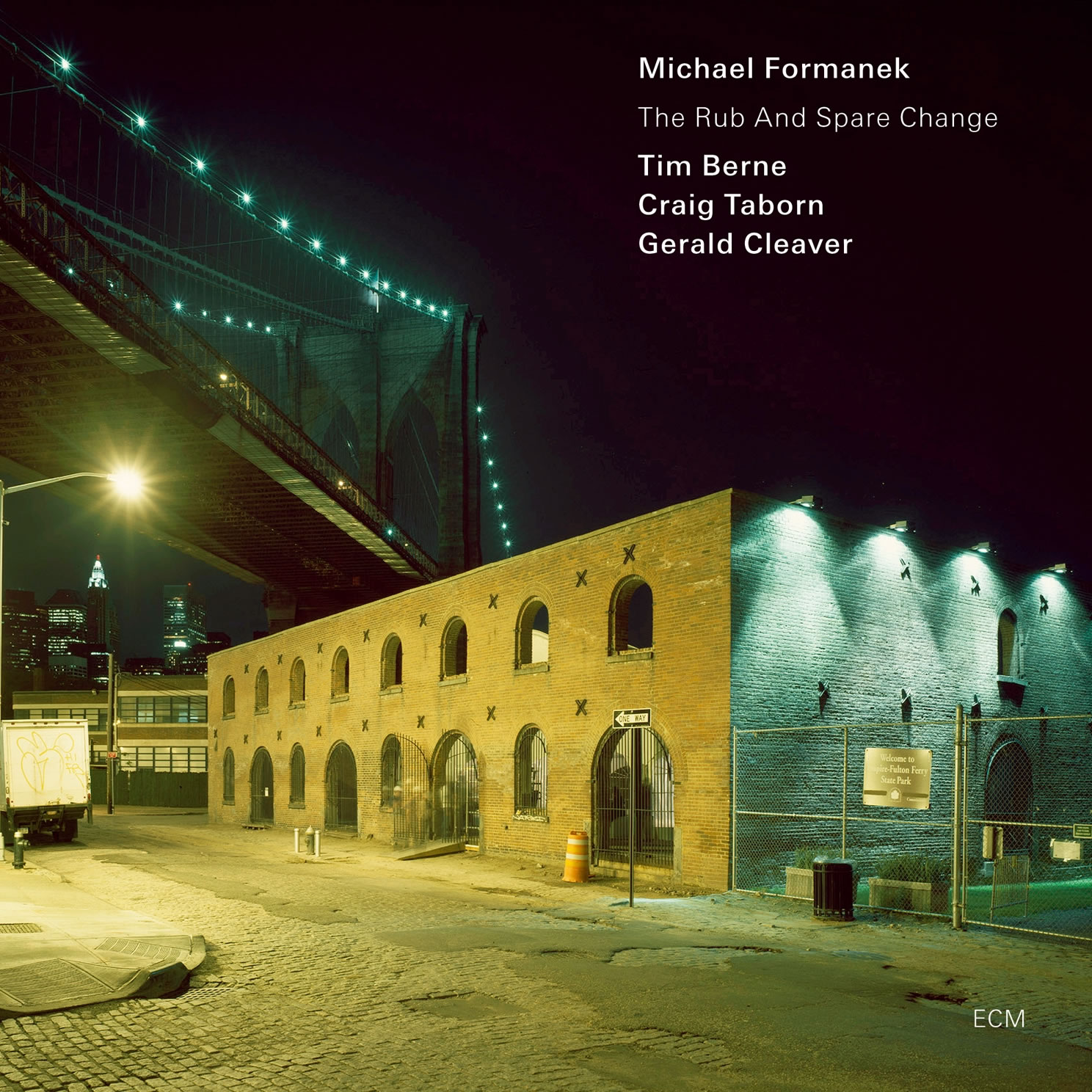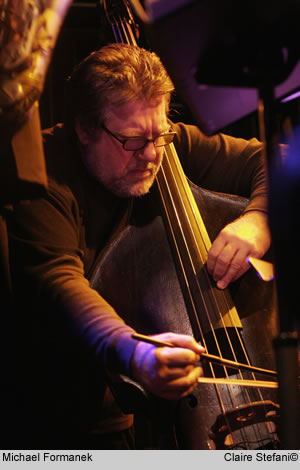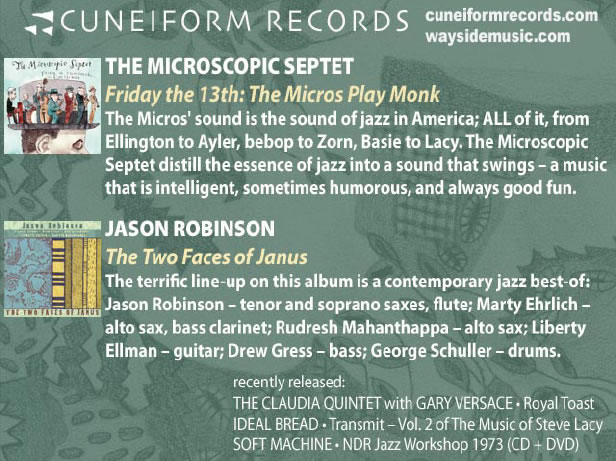Moment's Notice
Reviews of Recent Recordings
Michael Formanek Quartet
The Rub and Spare Change
ECM 2167


Bassist Michael Formanek hasn’t recorded as a leader in twelve long years, but he makes up for lost time with this tremendous new release. It’s a disc by an artist at the height of his mature powers as a composer and instrumentalist, not so much a leap forward as a refined masterwork. Formanek’s quartet with alto saxophonist Tim Berne, pianist Craig Taborn, and drummer Gerald Cleaver fully realize his music, making a seamless whole of improvisation and Formanek’s composing, with brilliant soloing and shrewdly judged ensemble work.
Formanek has always seemed less concerned with specific genres than with good music making. He’s recorded with Lee Konitz, Harold Danko, Atilla Zoller, and Fred Hersch, all of whom can straddle the post bop/free jazz borderline when they want to, and all of them notably adept at weaving composition and improvisation into one continuous fabric. He’s also worked in the Mingus Big Band, playing the music of a fellow bassist who was also one of the first great long-form composers in jazz. Other sideman projects have included Uri Caine’s Mahler project (another setting in which overall architecture is key), as well as the ensembles of Marty Ehrlich and James Emery, two musicians with advanced ideas about blending improvising and composing.
Of course Formanek’s most important association is with saxophonist Berne, most prominently in his Bloodcount quartet of the late ’90s, whose epic performances (and seven CD releases) routinely stretched improvising forms beyond the forty-minute mark. He also recorded Ornery People, a resourceful duet album with Berne on Berne’s Screwgun label.
Berne has returned the favor and appears on all of Formanek’s superior Enja recordings, most notably Low Profile (1994), and Nature of the Beast (1996). These albums display a sophisticated fusion of classical and jazz sources, a playful sense of form, and a willingness to blur the borders between composition and improvisation. They also have a sly sense of mischief and good humor that make them quite entertaining as well. Berne released Formanek’s solo bass album, Am I Bothering You?, in 1998. Since then, Formanek has maintained recorded silence as a leader, concentrating instead on his duties as a faculty member and director of the jazz orchestra at the Peabody Conservatory in Baltimore.
Formanek leads from within, holding things together in his dual role as composer and performer. His notes acquire a percussive snap in places that need rhythmic emphasis, and his longer lines provide a contrapuntal layer when needed. He knows when to provide contrast and when to reinforce whatever is happening. He syncopates odd meters masterfully, so they swing and groove, and he can give free pulsing music definition without making it solidify into a strict meter.
The music on The Rub and Spare Change is played with refinement, attention to the details of composed and improvised structure and flow, and ensemble balance, but never at the sacrifice of the vitality and bonhomie that mark Formanek’s earlier recordings. Despite the heavy musical lifting required, it feels like everything is coming directly from the gut. The opening “Twenty Three Neo” is played with astonishing delicacy, with written and improvised passages melting into one another, subtle dynamics repositioning instruments within the ensemble, and ideas mysteriously dissipating and rematerializing. Formanek splits the band in two, with a piano-drum vamp to holding down rhythmic duties while the alto and bass explore melody. A piano solo serves as a bridge to the second half of the medley, a more freely structured collective piece. The title track hitches a tune with great rhythmic tension and a sharp groove to a freely structured composition with written melodic islands floating in dispersed rhythms and a slow pulse. The friction between parts in the first half and the gentle melding of parts in the second work together thanks to an intensely realized alto performance and the sure handed way the band guides the music from one section to the next.
The “Tonal Suite,” at 17 minutes the album’s big set piece, connects three pieces into a single suite. Here again, Formanek constructs the framework with contrast and variety in mind, and it’s the band that transforms it into a unified whole. Berne and Taborn each shift in and out of the foreground while Formanek and Cleaver play with the underlying rhythms, expanding and contracting the tempo, changing the density of the music, creating tension and release. The seamless weave of elements, the colors and rhythms bleeding into one another, the written and improvised motifs running into one another, creates a changing, growing, living performance. It’s played effortlessly, like it’s second nature to them, and the comfort level frees the soloists. They play pitch perfect improvisations that never transgress the parameters of the composition. It’s free and expressive and all of a piece.
Formanek has returned to recording with one of the strongest albums of his career.
–Ed Hazell
